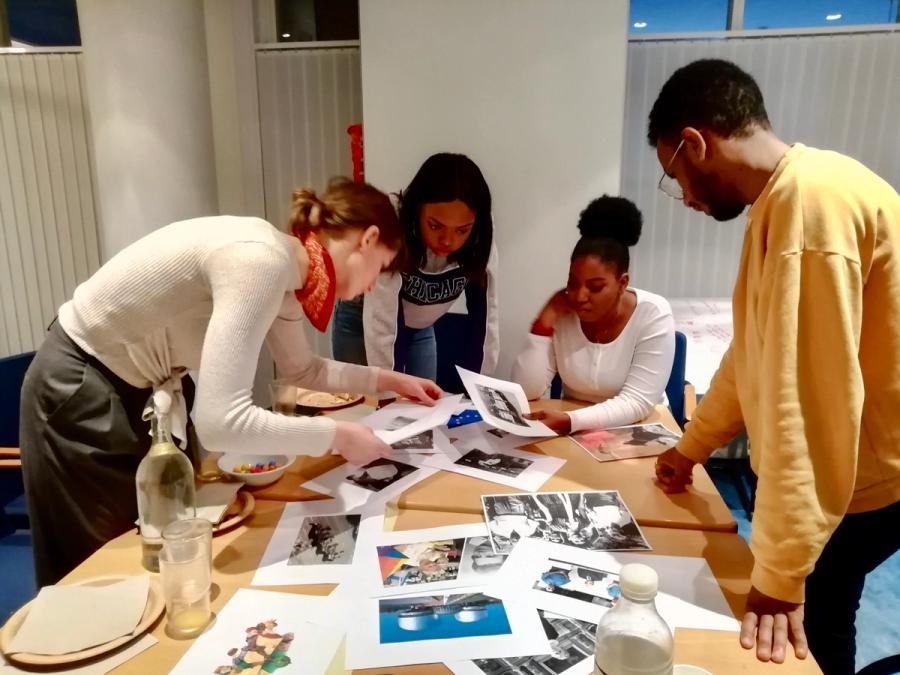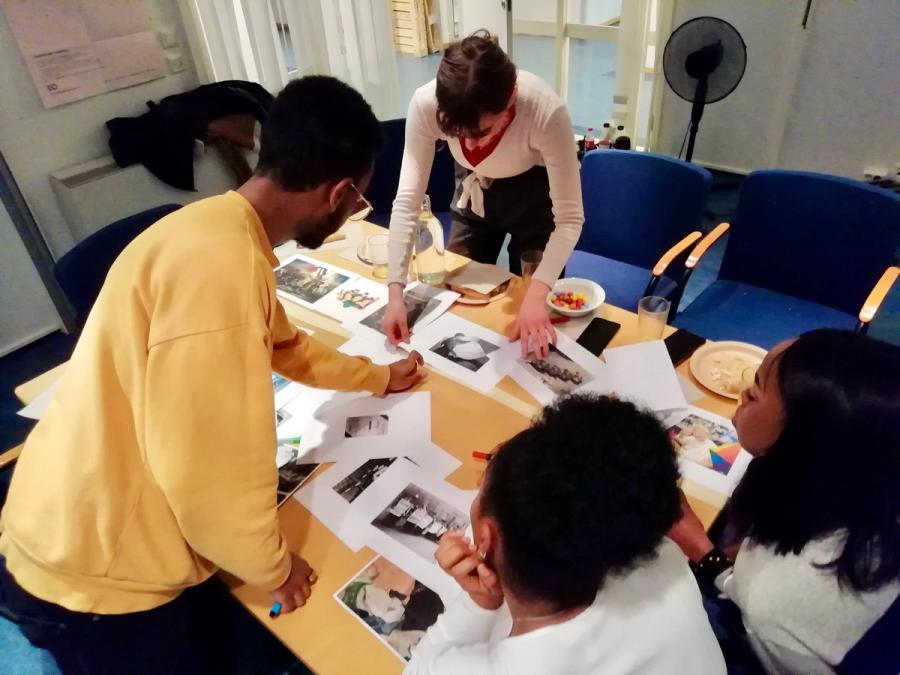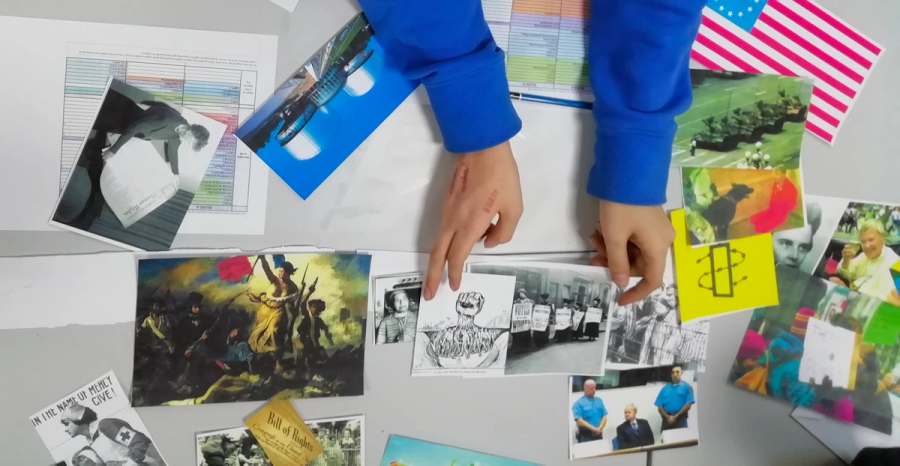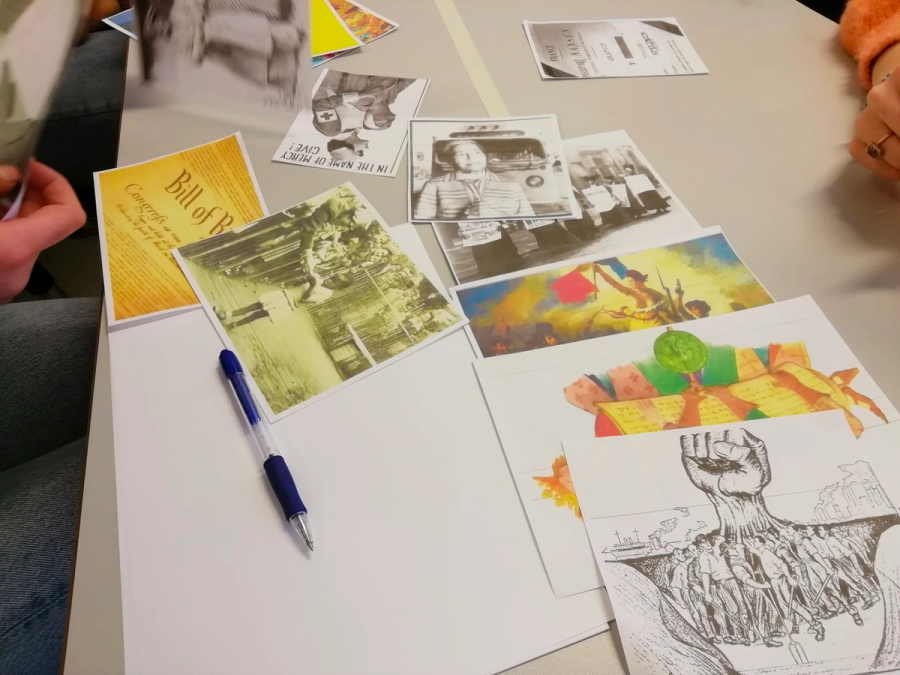Human rights timeline
By identifying milestone historical events and documents the participants will reflect on the positive development of human rights and their meaning in our lives.
Quick facts




Activity goals
- Learn about the history of human rights by studying the images showing milestone events, documents and people who have contributed to universal human rights.

Instructions
- The facilitators put masking tape in the middle of two tables (placed side-by-side) to mark a timeline. Write “Beginning of the 13th century” on one end and “End of the 21st century” on the other.
- Make groups of 4-5 participants. Give them a set of images. Download images (link). This can be 19 images, as suggested here. Alternatively, images can be divided into two sets, 9 or 10 each.
- Assignment: produce a human rights timeline by putting the images on the table in chronological order. The participants do not have to know the exact dates of events or the people shown in the pictures. The idea is to encourage them to discuss the message that the image conveys, and to imply the date, place and the human right the image relates to.
- When timelines are ready, the groups can come together for a plenary discussion. The facilitator informs about the background of the pictures. About the pictures (link).
- Questions to discuss:
- What does the image show?
- What connection does the image have to human rights?
Reflection
- Who has the primary responsibility to protect and fulfil human rights?
- What can you as an individual do?
- What can the timeline teach us about the development and implementation of human rights?
Debriefing
The idea that all human beings are entitled to some fundamental human rights dates far back into history.
Historians will nevertheless concede that the "human rights" in a given epoch – regardless how universal they were claimed to be – did not apply to all. Even 2300 years ago, the natural law philosophers proclaimed that there were moral and judicial norms that applied to all human beings, regardless of time and place and local traditions. Paradoxically, their contemporary society was based on slavery and was a far cry from today's ideas about rights. Nor did the documents spearheading the modern epoch of human rights – the American Declaration of Independence (1776) and the French Declaration of the Rights of Man and the Citizen (1789) – include everyone. Women, half of the population, were excluded.
The atrocities that occurred during the Second World War led to the establishment of the United Nations (UN) in 1945 and the The Universal Declaration of Human Rights (1948). The declaration was an important political and moral document, but as a declaration it had no legal binding force for the states when it was adopted in 1948. That is why the UN Human Rights Commission and the state representatives continue to negotiate and to develop legally binding human rights treaties.
Unfortunately, we cannot say that the world today is free of torture, hunger or unlawful arrests. Nevertheless, it is important to reflect on core historical events, the adoption of decisive legislation and the personal courage of people around the globe who are making concrete tools to advance human rights and protect human beings from abuse, injustice and discrimination.
Tips to facilitator
The Human Rights Academy has interviewed five activists about their engagement and how they use human rights in their work. Show the short film "About the future" to illustrate the importance of believing that change is possible.





